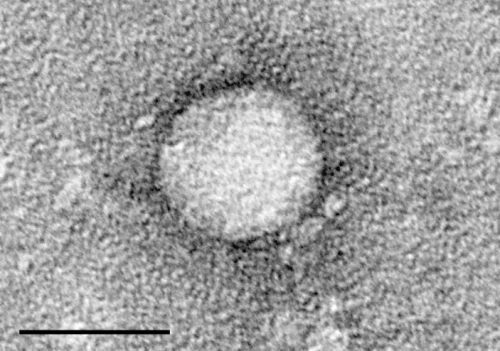This article has been reviewed according to Science X's editorial process and policies. Editors have highlighted the following attributes while ensuring the content's credibility:
fact-checked
reputable news agency
proofread
CDC data amplifies calls for funding hepatitis plan

Only one-third of individuals diagnosed with hepatitis C have been cured in the decade since cures for the disease became available, according to a study published Thursday from the Centers for Disease Control and Prevention.
Hepatitis C is a viral inflammation of the liver that can be asymptomatic yet spread through blood or other bodily fluids. Without treatment, hepatitis C is a chronic condition that can lead to liver cancer, liver failure or other comorbidities.
The Food and Drug Administration approved the first highly effective direct-acting antiviral drugs to cure hepatitis C in 2013. Treatment occurs over the course of 8 to 12 weeks and has a 95% success rate.
But almost 15,000 Americans still die from hepatitis C annually.
"These deaths could have been prevented. Thousands of people are dying every year in our country, and many more are suffering from an infection that has been curable for over 10 years," said Jonathan Mermin, director of the National Center for HIV, Viral Hepatitis, STD, and TB Prevention, in a call Thursday with reporters.
Despite the availability of these cures, commercial data showed only one in six uninsured adults under 40 with hepatitis C have been cured, according to a Morbidity and Mortality Report published Thursday examining hepatitis C infections from 2013-2022.
The highest cure rates were among adults with commercial insurance or covered through Medicare, but both rates were still below 50%.
Carolyn Wester, director of CDC's division of viral hepatitis, said the high cost of these treatments and insurance policies that limit or delay who is eligible to provide or receive treatment result in reduced access, both serve as significant barriers.
Patients with Medicaid coverage and who are incarcerated also experience barriers to access.
Francis Collins, the former longtime NIH director who leads the White House National Hepatitis C Elimination Program, said the data "highlights an urgency for a bold response to hepatitis C."
Collins previewed his pitch for a national plan last fall, whereby the federal government could secure a subscription to these drugs to expand access at a lower, fixed cost. Louisiana implemented the first such state model in 2019.
In March, the White House requested Congress to include $11.3 billion to establish a national hepatitis program in its budget, adding that by 2032 the program would reduce annual Medicaid spending by hundreds of millions of dollars.
Collins, speaking Thursday, pointed to a separate analysis published in April that estimated the program could save the federal government $13.3 billion over 10 years and $44.2 billion over 20 years.
Neither chamber has released its Labor-HHS-Education spending bill for fiscal 2024, but Collins is hopeful to find a way forward.
"There is interest in the Congress, both the House and the Senate, across parties, but it is still not to the point I think to be able to say exactly how that is going to take shape," he said. "A lot of this depends upon the specific legislative language and what the [Congressional Budget] office will conclude as far as the cost issues because that's obviously something everybody's waiting for."
He pointed to encouragement from Senate Health, Education, Labor and Pensions Committee ranking member Bill Cassidy, R-La., a hematologist who helped lead the Louisiana pilot.
"Certainly working with him and his staff over the course of the last year has been critical in shaping this effort," said Collins, who also credited the support of Rep. Hank Johnson, D-Ga., who has spoken publicly about previously battling the disease. "I think there is reason for us to be optimistic this could happen and I'm not ready yet to talk about what we might do if it didn't."
Collins also emphasized the need for increased and amplified hepatitis C testing, which is currently a two step process. He pointed to an effort in collaboration with NIH and FDA to gain approval for a rapid point-of-care test to pave the way for testing and treatment in the same medical visit.
"This is compassionate care, but it can also contribute to deficit reduction," said Collins. "It's rare, in my experience, to have an opportunity to both save lives and save money but that's exactly what this is. I don't know too many people who have looked at this situation and not felt like we have to do something."
2023 CQ-Roll Call, Inc.
Distributed by Tribune Content Agency, LLC.

















